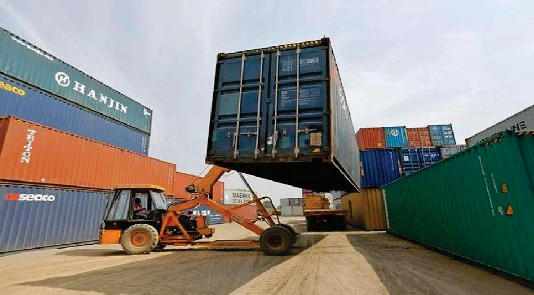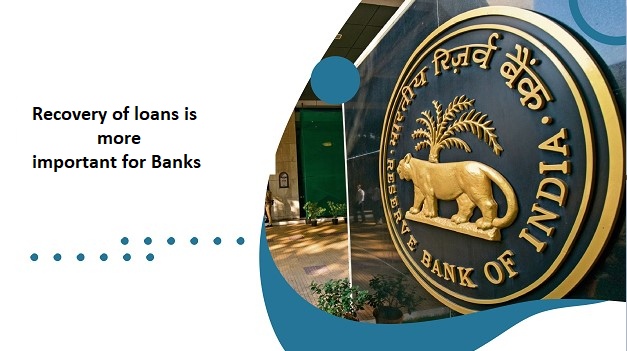
Is Economic Protectionism in India is Suicidal?
- December 22, 2020
- 0
A year after India’s last exit from the Regional Comprehensive Economic Partnership (Arcep) trade agreement, the entire business environment has changed radically. Other countries involved in the RSEP- Asean and Japan, group of South East Asian countries, China, Korea, Australia and New Zealand etc. went ahead and signed the treaty.
Meanwhile, the policies of the Indian government have become largely protectionist. Import duties were adopted for this, Various restrictions were imposed and production-related incentives were implemented which now siege many areas.
In such a situation, it is becoming more difficult to join any other meaningful business block. However, RSEP is a mild compromise compared to all other options. In the case of partnership across the Atlantic, she pays more attention to 21st century trade deadlock than 20th century Arcep.
Nevertheless, it will have a major impact on India’s existing business partners and the region. ASEAN countries predict that two-thirds of the goods being traded in RCAP countries will be duty-free and quota-free. Other regulations related to manufacturing of goods will be simplified.
This will strengthen and strengthen the supply chain between the RSEP countries. Two-thirds of them are being traded and quota will be exempt. Other regulations related to manufacturing of goods will be made easier.
This will strengthen and strengthen the supply chain between the RSEP countries. Of these, two-thirds of them will be duty free and quota free. Other regulations related to manufacturing of goods will be made easier. This will strengthen and strengthen the supply chain between the RSEP countries.
Now if India changes its mind and wants to join it, then the path will not be easy because China will create all obstacles. It is also unclear what the next step will be for Indian imports. The lobby of protectionist industries has been successfully disrupting the India-EU Free Trade Agreement for a long time. Indian diplomats have been consistently claiming that a small agreement with the European Union is about to take place.
While the Union has repeatedly stated that the EU’s internal complexity is not and will not be signed. He will only sign the Comprehensive Agreement. The trade agreement with the US is far away.
India will be isolated if Asia-Pacific and Africa join its internal free trade bloc. This will affect exports and growth.
It is financially suicidal. It also insecurity of the government regarding manufacturing and to some extent domestic competition in agriculture it shows. Self-reliance is not a better option for free trade and it shows that our policy direction is not right.
भारत में आर्थिक संरक्षणवाद
भारत के क्षेत्रीय व्यापक आर्थिक साझेदारी (आरसेप) व्यापार समझौते से अंतिम समय में बाहर निकलने के एक साल बाद उसके लिए समस्त व्यापारिक माहौल में आमूलचूल बदलाव आ चुका है। आरसेप में शामिल अन्य देश-दक्षिण पूर्वी एशियाई देशों का समूह आसियान और जापान, चीन, कोरिया, ऑस्ट्रेलिया और न्यूजीलैंड आदि ने आगे बढ़कर संधि पर हस्ताक्षर किए।
इस बीच भारत सरकार की नीतियां काफी हद तक संरक्षणवादी हो गई हैं। इसके लिए आयात शुल्क अपनाया गया, विभिन्न प्रतिबंध लगाए गए और उत्पादन से जुड़े प्रोत्साहन लागू किए गए जो अब कई क्षेत्रों की घेराबंदी कर रहे हैं। ऐसे में किसी अन्य सार्थक कारोबारी ब्लाॅक में शामिल होना और मुश्किल हो रहा है। हालांकि आरसेप तमाम अन्य विकल्पों की तुलना में हल्का समझौता है।
अटलांटिक पार साझेदारी की ही बात करें तो 20वीं सदी के आरसेप की तुलना में वह 21वीं सदी के व्यापारिक गतिरोधों पर अधिक ध्यान देती है। बहरहाल इसके बावजूद यह भारत के मौजूदा कारोबारी साझेदारों और इस क्षेत्र पर व्यापक प्रभाव डालेगी। आसियान देशों का अनुमान है कि आरसेप देशों में अभी जितनी वस्तुओं का कारोबार हो रहा है उनमें से दो तिहाई शुल्क और कोटा मुक्त होंगी। वस्तुओं के निर्माण स्थल से संबंधित तथा अन्य नियमन को आसान किया जाएगा। इससे आरसेप देशों के बीच आपूर्ति श्रृंखला प्रभावी और मजबूत होगी।
अब अगर भारत का मन बदले और वह इसमें शामिल होना भी चाहे तो राह आसान नहीं होगी क्योंकि चीन तमाम बाधाएं पैदा करेगा। यह भी स्पष्ट नहीं है कि भारतीय आयात के लिए अगला कदम क्या होगा।
संरक्षणवादी उद्योगों की लाॅबी-यूरोपीय संघ मुक्त व्यापार समझौते को लंबे समय से सफलतापूर्वक बाधित कर रही है। भारतीय राजनियक निरंतर यह दावा करते हें कि यूरापीय संघ के साथ एक छोटा समझौता बस होने ही वाला है। जबकि संघ ने बार-बार कहा है कि यूरोपीय संघ की आंतरिक जटिलता के कारण हस्ताक्षर नहीं हुए और न होंगे। वह केवल व्यापक समझौते पर हस्ताक्षर करेगा। अमेरिका के साथ व्यापार समझौता अभी दूर की कौड़ी है।
यदि एशिया-प्रशांत और अफ्रीका अपने आंतरकि मुक्त व्यापार ब्लाॅक में शामिल होते हैं तो भारत अलग थलग पड़ जाएगा। इसका असर निर्यात और वृद्धि पर पड़ेगा। यह आर्थिक दृष्टि से आत्मघाती है। वह विनिर्माण और कुछ हद तक कृषि क्षेत्र में घरेलू प्रतिस्पर्धा को लेकर सरकार की असुरक्षा भी दर्शाता है। आत्मनिर्भरता मुक्त व्यापार का बेहतर विकल्प नहीं है और यह दर्शाता है कि हमारी नीतिगत दिशा सही नहीं है।































































